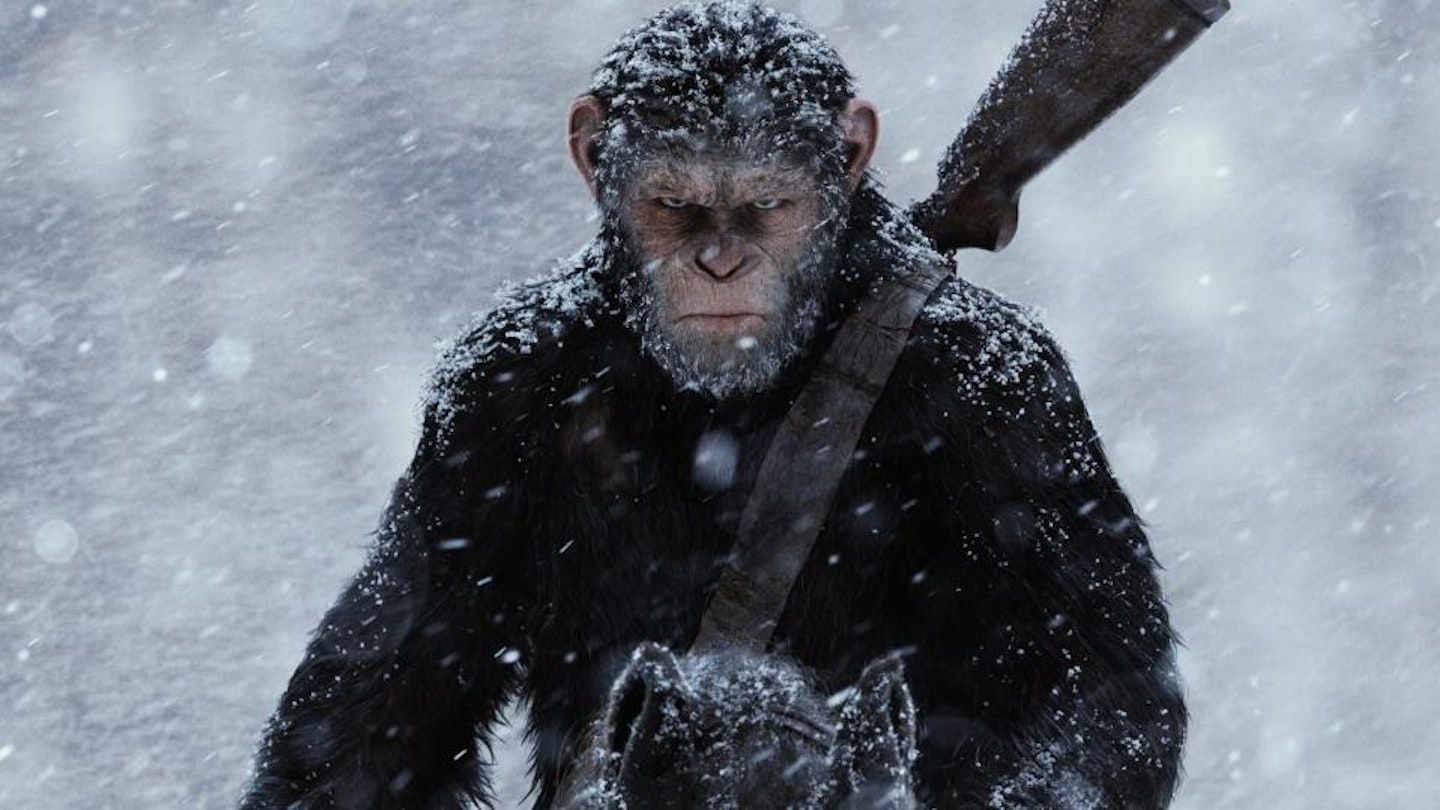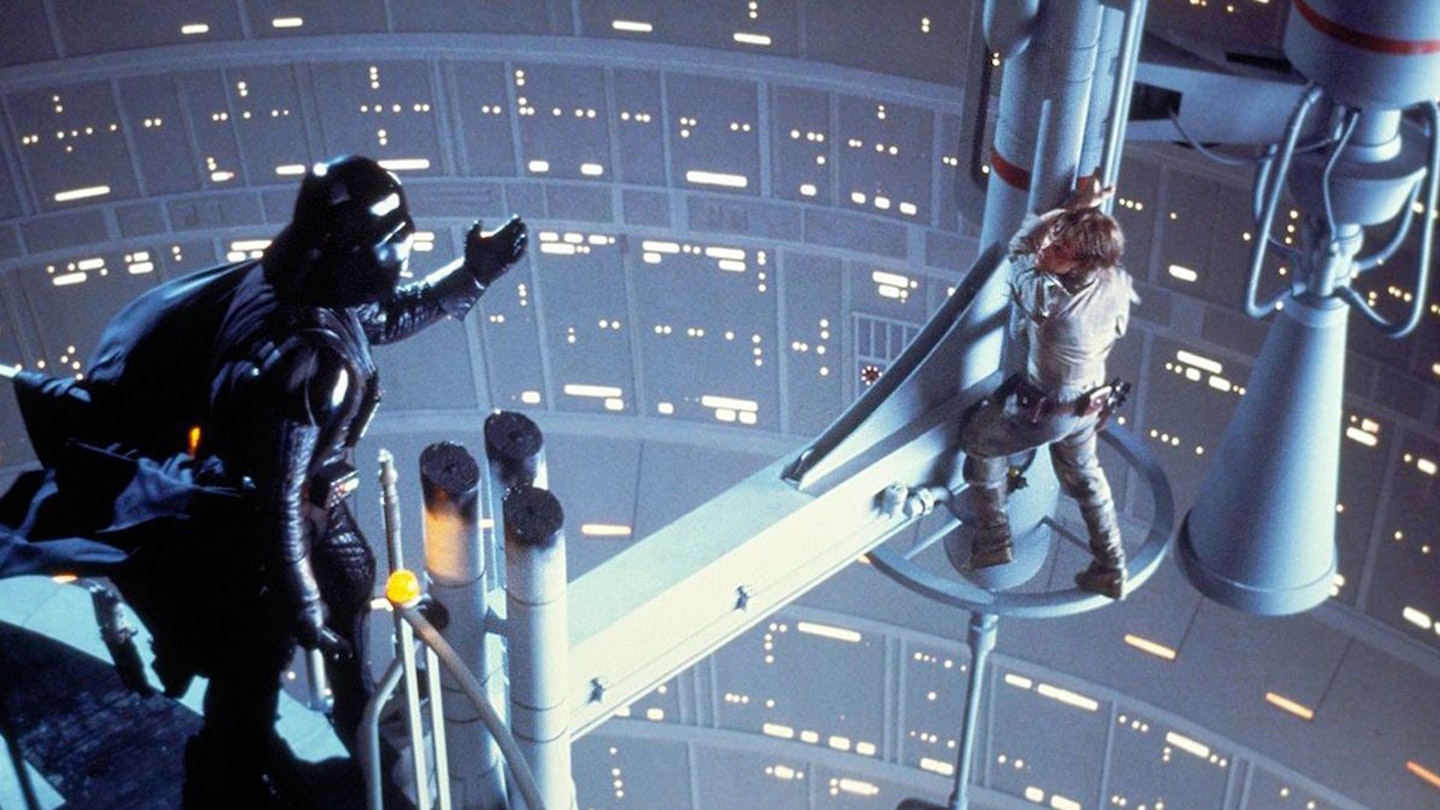Three astronauts crash-land in the sea on a desolate, unwelcoming planet. They make their way to the rocky shore. One of them plants a sandcastle-sized American flag in the dust. Seeing this rather pathetic sight, the cynic among them laughs — oh, how he laughs! George Taylor (Heston, for it is he), throws back his head and lets out a booming, sarcastic guffaw, which echoes eerily around the canyon in which the men find themselves, light years from home.
Planet Of The Apes is like that. Its visuals have become so imprinted on our minds, through sequels, spin-offs and straightforward repetition on TV, that we sometimes overlook its subtleties. When Taylor laughs at the stars and stripes, it crystallises the heart of the film. Here is a man with little time for mankind, and less time for worthless symbols of his so-called civilisation. A misanthrope in conquistador's clothing, he laughs in the face of his mission, now so obviously gone awry; he fully expects to perish on this godforsaken planet, and if he were the last representative of his species left alive, then good riddance. Extinction was too good for them.
It is Taylor's journey — and by that token, Heston's credible, athletic performance — that makes Planet Of The Apes so much more than a piece of rubber-mask sci-fi hokum: he begins the story hating himself and his fellow man; in the face of ape tyranny he learns to love himself (and his fetching mate, Nova); but he ends up on the beach, damning the human race all to hell, an ambassador now, but a very disappointed one.
We can admire John Chambers' pioneering simian make-up all we like (and there might never have been lunchboxes and Marvel comics and Saturday-morning cartoons without it) but Planet Of The Apes' abiding power as a movie rests squarely with the bloke who played Ben-Hur. Heston first encountered Apes in 1966, then just a pitch and a portfolio of preliminary drawings touted around by producer Arthur P. Jacobs, who'd acquired the rights to a French novel called La Planete des Singes by Pierre Boulle.
"The novel was singularly uncinematic," recalls Heston in his autobiography. "Still, I smelled a good film in it." In this, Heston was apparently alone. But a year and half of blank faces and sealed cheque books later, Jacobs convinced Dick Zanuck at Fox to fund the picture once a few worries had been ironed out: "What if the audience laughs at the makeup?" he asked, pertinently. In the event, Fox stumped up $50,000 just to develop the monkey faces. Prosthetic supremo Chambers did a miraculous job, and director Schaffner (later to win an Oscar for Patton) shot a test-scene between Heston and Edward G. Robinson playing orang utan chief Dr Zaius. The studio loved it, and off they all went to Arizona to make sci-fi history — and $28m at the box office (except Robinson, who bailed due to a weak heart and aversion to latex).
Planet Of The Apes was a serious technical challenge, what with all those moulded rubber face-parts designed to move with the actors' features. "You just have to over-act with your face, and it shows quite subtly on the make-up," said Roddy McDowall, a man who went to his grave best-known for playing Cornelius in four of the five films, and Galen on TV. It was also a physically gruelling shoot, not least for the stripped, sprayed and hunted Heston ("Even rubber rocks hurt," he complained), but the efforts by all concerned flesh out Boulle's political allegory with a conviction that ensured nobody was "laughing at the make-up".
There is humour in Rod Serling and Michael Wilson's script ("Human see, human do"), but the over-riding effect is a terrifying one, from the visceral thrill of the gorilla troops on horseback, to the moment where "Bright Eyes" (Taylor's cutesy nickname in captivity) speaks for the first time: "Take your stinking paws off me, you damn dirty ape!"
The relentless cycle of sequels — which do, to their credit, form a time-bending circle — has had the effect of tainting the unique magic of the original film (in our collective memory, bits of Beneath The Planet Of The Apes and Escape From blur into the first), which is why sitting down and watching it again, in isolation, is so rewarding. It doesn't need a part two. Think of its powerful Statue Of Liberty denouement. As great movie endings go, it pisses on "Nobody's Perfect!"

